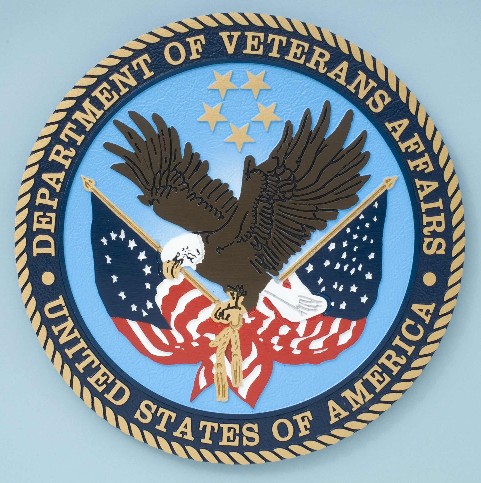Washington D.C.
 A federal judge on Tuesday sentenced two owners and an employee of for-profit, non-accredited schools were sentenced during the last two days for bribing a public official at the U.S. Department of Veterans Affairs, according to officials.
A federal judge on Tuesday sentenced two owners and an employee of for-profit, non-accredited schools were sentenced during the last two days for bribing a public official at the U.S. Department of Veterans Affairs, according to officials.
The bribe was in exchange for the public official’s facilitation of over $2 million in payments that were supposed to be dedicated to providing vocational training for military veterans with service-connected disabilities.
Albert Poawui, 41, of Laurel, Maryland, was the owner of Atius Technology Institute, a school purporting to specialize in information technology courses.
Sombo Kanneh, 29, of McLean, Virginia, was Poawui’s employee at Atius. Michelle Stevens, 57, of Waldorf, Maryland, was the owner of Eelon Training Academy, a school purporting to specialize in digital media courses.
U.S. District Judge John D. Bates sentenced the trio
 Poawui was sentenced to serve five years and five months in prison and ordered to pay $1.5 million in restitution to the VA.
Poawui was sentenced to serve five years and five months in prison and ordered to pay $1.5 million in restitution to the VA.
Kanneh was sentenced to serve 20 months in prison followed by three years of supervised release and was ordered to pay $113,227.30 in restitution to the VA and to forfeit $1.5 million.
Stevens was sentenced to serve two years and six months in prison followed by three years of supervised release and ordered to pay $83,000 in restitution to the VA and to forfeit $83,000.
James King, the VA official who all three defendants bribed, has pleaded guilty to bribery, wire fraud, and falsification of documents, and will be sentenced on Friday.
The Vocational Rehabilitation and Employment or VR&E program is a VA program that provides disabled U.S. military veterans with education and employment-related services. VR&E program counselors advise veterans under their supervision which schools to attend and facilitate payments to those schools for veterans’ tuition and necessary supplies.
According to court admissions, in or about August 2015, Poawui and King agreed that Poawui would pay King a seven percent cash kickback of all payments made by the VA to Atius.

In exchange, King steered VR&E program veterans to Atius regardless of the veterans’ educational needs or interests and notwithstanding their repeated complaints about the poor quality of education at Atius.
Between Aug. 2015 and Dec. 2017, Poawui, King, and the scheme’s other participants caused the VA to pay Atius approximately $2,217,259.44. Poawui paid King over $155,000 as part of the illicit bribery scheme.
These bribery payments were hand-delivered by Poawui or Kanneh to King or King’s assistant, who was a veteran enrolled in the VR&E program. Kanneh admitted that she routinely moved money between Atius’s bank accounts to facilitate bribe payments to King.
Poawui also admitted that he made numerous false representations to the VA to enhance the scheme’s profits.
For example, Poawui certified to the VA that veterans attending Atius were enrolled in up to 32 hours of class per week, when in fact he knew that Atius offered a maximum of six weekly class hours. After the VA initiated an administrative audit of Atius, Poawui and King took steps to conceal the truth about earlier misrepresentations they had made to the VA.
According to admissions made in connection with Stevens’ plea, she created Eelon Training Academy after learning about the VR&E program from King.
In or about Sept. 2016, King facilitated the first tuition payment from the VA to Eelon.
Shortly after receiving this payment, King told Stevens that she should give him seven percent of the monies paid by the VA to Eelon. King proceeded to steer veterans under his supervision to Eelon regardless of their resistance to attending Stevens’ school.
Stevens admitted to later making two cash payments of $1,500 to King in exchange for King sending veterans under his supervision to Eelon and facilitating the VA’s payments to Stevens.
In total, Stevens received approximately $83,000 from the VA for education that she purported to provide to veteran students.
Stevens submitted invoices to the VA amounting to no less than $300,000 for the tuition and equipment of seven students, but was not paid the balance of the invoice amount due to the VA’s ongoing investigation into Eelon following complaints by students about the poor quality of education.
In an effort to procure the outstanding payments from the VA, Stevens made numerous fraudulent misrepresentations to the VA, and maintained fraudulent student files in the event of an audit by the VA. For example, Stevens emailed to the VA an “attendance” sheet for eight students.
The attendance sheet was created by Stevens and included handwritten check marks purporting to represent the dates that the students attended class.
In fact, as Stevens well knew, the students had not attended class on many of those dates nor was class even held on many of those dates.

